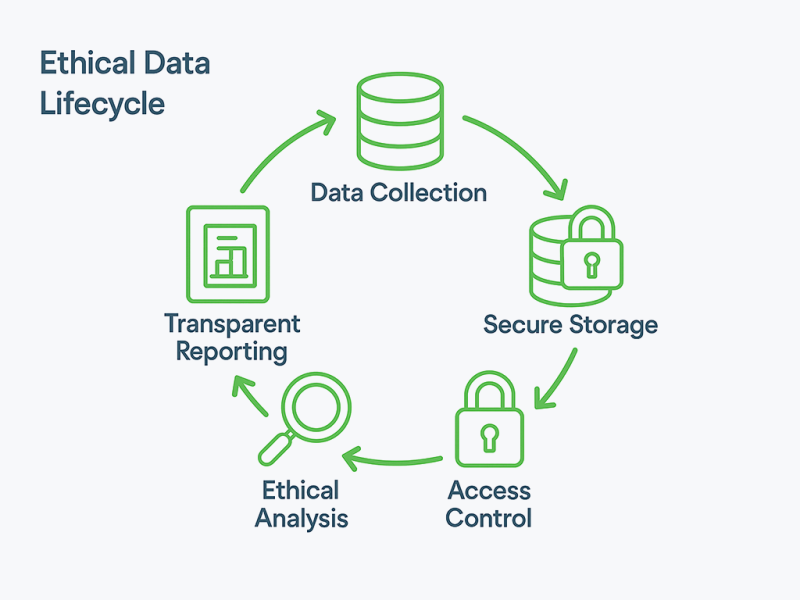In this post, we explore the key ethical principles that protect participants and ensure the integrity of your data.
1. Informed Consent: Clarity from the Start
Respecting participants begins with transparency. Informed consent is not just a formality; it's a critical step in building trust. It ensures that respondents are fully informed about the survey's:
Purpose: Why is the survey being conducted, and what will the data be used for?
Procedures: What will participants be asked to do, and how long will it take?
Data Use: How will their responses be stored, analyzed, and possibly shared?
Rights: Can they skip questions or withdraw from the survey at any point without consequence?
Clearly presenting this information, typically at the beginning of the survey, empowers participants to make an informed choice about their involvement.
2. Protecting Privacy: Confidentiality and Anonymity
Trust is a cornerstone of ethical research, and protecting participants' privacy is essential for earning and maintaining that trust. There are two key concepts:
Confidentiality means that any identifying information collected is kept private and only accessible to authorized personnel.
Anonymity means that no identifying information is collected at all, making it impossible to trace responses back to individual participants.
Providing options for anonymous participation and being transparent about how data is stored and who can access it helps reassure participants and encourages honest feedback.
With QPoint, these privacy features are built in. You can easily configure anonymous response modes, restrict data access with role-based permissions, and ensure all data is securely stored with encryption, helping you stay compliant with regulations like GDPR.
3. Bias-Free Questions: Neutral and Fair
The wording of your survey questions has a significant impact on the reliability of your results. Leading or biased questions can nudge participants toward particular answers, undermining the objectivity of your data. To avoid this:
- Use clear, neutral language that doesn’t suggest a “correct” answer
- Offer balanced response options that fairly represent a range of perspectives
- Steer clear of loaded assumptions or emotionally charged language
Pilot testing your survey with a small, diverse group can help identify potential sources of bias and ensure your questions are fair and inclusive.
4. Inclusivity and Cultural Sensitivity
Your survey audience may include individuals from various cultural, linguistic, and socio-economic backgrounds. To make your survey inclusive and respectful:
- Use gender-neutral and culturally inclusive language
- Be mindful of different norms, values, and holidays that could affect responses
- Provide translation options or simplified language for non-native speakers
- Ensure accessibility, such as screen reader compatibility and mobile-friendly design
Designing with inclusivity in mind not only broadens your reach but also enriches the quality and authenticity of your insights.
5. Ethical Data Handling
Once the data is collected, your ethical responsibilities continue. Proper data stewardship involves:
- Secure storage using encrypted databases or protected file systems
- Access controls so only authorized personnel can view or manipulate sensitive data
- Transparent reporting that accurately represents the findings without manipulating or omitting inconvenient results
QPoint supports these needs with built-in compliance tools. Features like audit logs, export controls, and automated backups help teams ensure integrity while minimizing risk.

Final Thoughts: Ethics Drive Trust
Ethical survey research builds trust-not only with your respondents but also with your stakeholders and audience. When people feel respected and safe, they're more likely to participate honestly and thoughtfully.
By prioritizing informed consent, privacy protection, neutral question design, cultural sensitivity, and ethical data handling, you ensure your research is both effective and respectful. With powerful tools like QPoint Survey, it’s easier than ever to conduct surveys that meet high ethical standards while delivering meaningful insights.
Because great insights start with great respect for the people who provide them.